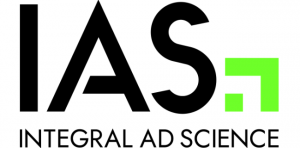dentsu's Sonya David on Meta, OpenAI, and NFTs
by Mathew Broughton on 10th Nov 2023 in Podcast
In this episode of The MadTech Podcast, Sonya David, head of strategy at dentsu Singapore, joins ExchangeWire's head of content John Still and CEO, Rachel Smith, to discuss Meta allowing marketplace sellers to opt out of data sharing, OpenAI's chatbot being trained on new information, and NFT propositions for brands.
Meta pledges to allow marketplace customers to opt out of data sharing
The UK competitor regulator said that Meta has pledged to allow its Facebook Marketplace customers to opt out of having their data used by the company, as well as limiting how advertising data is used for its own development. The Competition and Markets Authority reported that Meta’s signing of commitments to not use its advertising customers’ data removes the risk of the platform having an unfair competitive advantage.
Meanwhile, the commitments secured from Amazon will also ensure third-party Amazon Marketplace sellers can compete on a level playing field. Amazon’s commitments will come into force within six months.
How will this impact Meta’s relationship with advertisers? Does this represent a victory for consumer privacy?
OpenAI chatbot to be trained on new information
The OpenAI chatbot will be trained on information up to April 2023, announced OpenAI’s CEO Sam Altman at the company’s first developer conference.
When ChatGPT was launched a year ago, the chatbot only had the ability to answer questions based on archives of information up to 2021. Following its new training, the chatbot will also be able to digest more context (up to 300 pages of a standard book, for example), accept images as prompts, and even write code in a specific language.
How can generative AI keep changing the game? What sectors in our industry can benefit the most?
NFTs still promising for brands, despite rise and fall of hype
Despite the wavering hype, a report has found that businesses and institutions continue to have confidence in the benefits of NFTs. According to Bain & Company, NFT adoption has been constant since June 2022, demonstrating continuous mass implementation which should continue.
Sectors which have increasingly developed NFT-backed applications include sports, ticketing, luxury, retail, gaming and art. Their reliance is said to be expanded accessibility, transparency, convenience, accuracy, and fraud protection.
NFTs have been seen as a flash in the pan - but can they still be an interesting proposition for brands?






Follow ExchangeWire